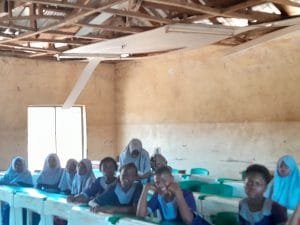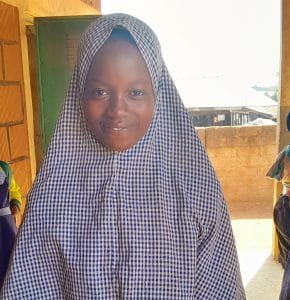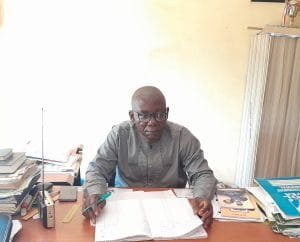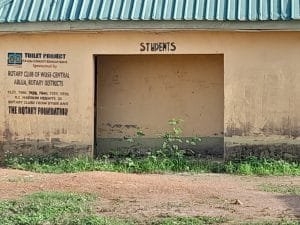
- Out of school, poor leaning crisis affecting education of children … UNICE
- ● Lack of school infrastructure hinders learning … expert
By Gom Mirian
Infrastructural decay in the education sector is a huge burden to residents of Abuja and indeed Nigeria. The sad situation has grossly affected school attendance with current statistics showing that 9.1 percent of children of primary school age are not attending any schooling at all; according to the Multiple Indicator Cluster Survey 2021 report.
Already, the country is battling the challenge of out-of-school children which has increased from 10.5 million to 18.5 million in 2022.
Abuja the Federal Capital Territory, FCT, is not one of the 10 most educated states in Nigeria.
As the nation’s capital, Abuja should have the best of everything including education. But this is not the case as run-down dilapidated schools dot the landscape of the giant of Africa’s capital city.
According to the 2021 MICS reports released by the United Nations Education Fund (UNICEF) in partnership with the National Bureau of Statistics (NBS), Abuja accounts for 11.4 percent of lower secondary school age out of school, and 20.3 percent of children of upper secondary school age out of school.
Nigeria has a twin crisis in education, with the first being a massive out-of-school problem and the second, being a massive learning crisis, UNICEF has said.
Acknowledging the scale of the problem, the FCTA Mandate Secretary (Education), Sani Elkatuzu said it had rolled out a project called “Renovate 100 schools in 100 days” to address the infrastructure deficit in primary schools across the nation’s capital.
Africa Health Report, AHR gathered that the project was funded by the MacArthur Foundation through the Resource Centre for Human Rights and Civic Education, as part of advocacy for improved social services in indigenous communities of Abuja. However, our investigations show how learning is still constrained in some public schools due to infrastructural decay and deficits despite donations.

On a visit to L.E.A Primary School, Lugbe along the airport road in Abuja, students were seen in overcrowded classrooms with some finding it difficult to write, hence not focusing on what was being taught. L.E.A. is a public school. It is 45 minutes away from the central area of the seat of power. Although not captured among the 100 schools mapped out by the FCTA to be renovated in 2022, the school is a sorry sight to behold.
In a chat with a primary six pupil of the school, Shamsiya Danjuma, who said she wants to be a lawyer, she told AHR that she wouldn’t like to be a teacher because she does not like anything in the school environment. “We do not have essential materials such as textbooks or a library,” the 16-year-old pupil added.
On his part, the Head Teacher, LEA Primary School, Mr. Abanino Johnson, said: “The support we are getting from the government is not enough. We do not have enough teachers and classrooms. In a class where you have 60 to 70 children and the class is manned by only one teacher, how will the teacher cope?
“Although the teachers are trying their best, the classes are overcrowded, so not every pupil will be given that personal attention required in a classroom setting. And lack of school furniture is another challenge. A chair meant for three pupils is shared by five due to the inadequacy of the chairs and desks. It is impossible to write in a situation like this.
“The classrooms built over 15 years ago have not been renovated. This school has since been solely managed and supported by the parents. Even when the wind blows off the roofs, the school PTA will ensure the building is put in order. We have only four toilets for 600 pupils,” he added.

He said despite these challenges, parents who cannot cope with high school fees from private schools due to the hardship in the country were still bringing their children daily to this school. “Admittedly, this adds additional pressure to an already overstretched and decayed infrastructure.”
Also, the Assistant Headmistress, LEA Primary School, Mrs. Josephine Eziokwu lamented the poor condition of the school, saying the situation was not healthy for both the children and teachers. She said: “The pay is too poor; teachers are not well paid even though we buy in the same market as those who are highly paid.
“Government should come up with accommodation packages for teachers and upgrade their payment to attract more people into the profession.
She added that “Out of the five blocks you are seeing, only three are functional. These two have collapsed behind, we have told the government. All they do is come and take pictures of the building but up till today nothing has been done. And we don’t have a borehole in the school, therefore, we don’t have water for the children to use”.
LEA Primary School is symptomatic of all primary schools in the FCT.
When AHR visited Gosa Junior Secondary School, also along the Airport Road in Abuja, classrooms were scanty even though one could blame this on the first day of resumption, but the story was different when it was told by a student from the school.
“Most of the students don’t come to school during the rainy season,” Emmanuel said, smiling.
“I am in school today because it did not rain but my classmates did not come because it rained last night.
“When it rains, we are drenched because the roofs leak and the wind sweeps dirt through the bad windows and dumps everything on us”, he added as he ran away.

AHR gathered that the large schools with over 1000 students monitored in Abuja, apart from LEA Primary School and Gosa Junior Secondary School do not have more than two toilets, which are part of the infrastructural issues affecting learning children.


